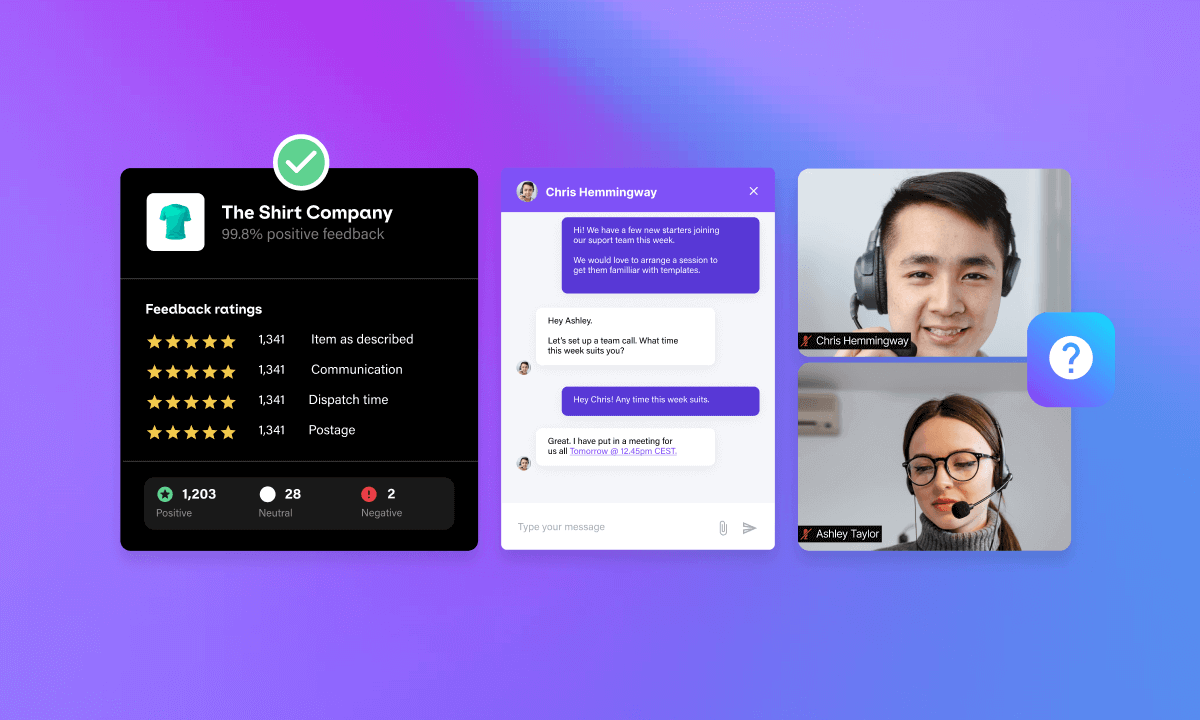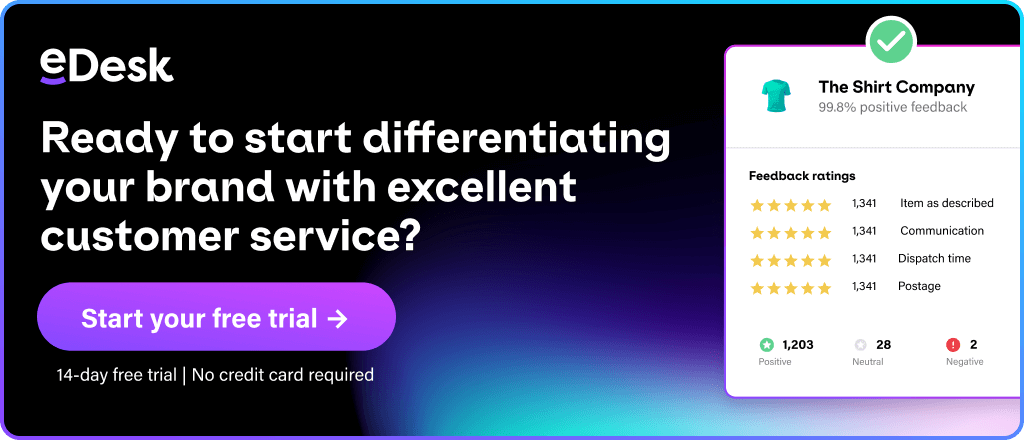As a species, we’re almost unhealthily obsessed with technology.
We queue for days to be the first owner of the latest mobile device, TV and movie screens are dominated with futuristic plots or unbelievable gadgets, and business owners are constantly looking for the next development that could change the world.
It makes complete sense. If there’s one thing that’s proven to elevate one competitor over another, it’s having the best tech.
And right now, there’s a push to get the best customer service tech out there because the happier your customers are, the more money they’ll spend with you.
But let’s dive into both the changing dynamic of customer expectations and where we can see it going in the next 10 years.
The Shift in Customer Expectations Will Drive Drastic Change
The internet has made consumers more impatient than ever. When you can research products on the bus, purchase with a single click, or browse a product selection on your phone whilst watching Netflix on the TV it’s not surprising.

This need for immediate communication between brands and consumers is becoming the single, most important factor when dealing with questions, queries, and complaints.
But unlike many marketing tactics, it’s not something the consumer is unaware of. Your customers are actively searching for brands with better service. Numerous studies like the one featured below have consumers placing speed of assistance as their top cause for staying with or leaving a brand.

On top of the need for speed, there’s a direct correlation between personalization and sales. Segment, in studying the effect of personalization discovered the below.

Couple these two elements and you have a consumer base that is looking for a speedy service that is personalized to them as an individual.
When it’s boiled down to those two simple concepts it doesn’t sound too difficult. The problems arise when you consider the manpower needed to meet immediate personalized responses.
It’s no small undertaking and is the major sticking point for many brands. However, it’s out belief that in 10 years there’ll be more than a few methods to combat this.
The Core of Customer Service in 10 Years
The hottest topic in any industry right now is the popularisation of AI and machine learning.
We’re all excited to see exactly how much work machines will be able to handle and how it’s going to affect business. However, with that excitement comes an equal measure of concern relating to the number of jobs that will be available.
After all, if a machine is able to mimic a human perfectly, then what’s the need to have people working in your business at all.
Personally, I think it’s an unfounded fear.
Jeff Bezos sums it up best in this interview when he says;
“I find that people, all of us, I include myself, we are so unimaginative about what future jobs are going to look like and what they are going to be. For example, if a convention of farmers a century ago were to learn that “massage therapist” would be a job, they would have been incredulous.”
AI isn’t going to make all of us jobless, but provide new kinds of jobs for us all. Perhaps a closer parallel to draw would be Henry Ford’s assembly line.

At first, the assembly line was simply a more effective method of streamlining the manufacture of the Model T. However, as years have gone by more of the assembly tasks have been automated with machines.
But does this mean that there’s no longer a need for that human touch? No. Far from it in fact.
The only automated elements of car production are those that are highly repetitive and require a uniform result – things like paint and body shops. The fact that machines can now handle these tasks has led to more people in more skilled roles.
In examining the phenomenon, industry experts Ron Harbour and Steve Scemama, have a lot of insightful elements to share. Below I’ve pulled some of their best quotes from the linked piece.
“If you look at the most agile, most cost effective and highest quality operations, you will notice that head counts haven’t plummeted over the past two decades”
“What kept so many humans on the job? The key was the high level of customization in the latest model and savvy recognition by the manufacturer that keeping robots and automation reprogrammed to meet constantly changing needs may have delayed the transition and, short-term at least, made it more expensive.”
There will always be a need for that human touch. We’re faster to adapt and AI is nowhere near the level where it can take the jobs that require adaptive thought and an emotional touch.
But that’s not to say AI and machine led service won’t help. The key is to have a human lead computers. To use machines to make the process more streamlined giving your staff more time to focus on the actual tasks that lead to increased sales and retention.
A good customer service solution in ten years will use machines to handle the tasks that are akin to the by the numbers car manufacturing. We’re talking the sorting of queries and questions, handling of frequent questions with templated responses written by a human, and managing time-consuming tasks that offer little value overall.
What this will lead to is a world where customer service is almost truly personal – and here’s how we think it will look.
More Video
Video contact with your customers is going be the driving force of communication in the future. Users are now able to speak to knowledgeable staff through live chat, but it still lacks the human touch that is eye contact and a person’s voice.
In testing video in a B2B setting (which is notoriously more serious than B2C sales) – video content helped HubSpot 4X their close rate.

With computers taking the strain from your customer service staff, they’ll have greater opportunity to jump on a video call with users to help them make the right decisions.
Live Chat will Dominate
Whilst video will be key, it’s not always feasible to jump on a video call. As the use of mobile devices continue to rise people will find themselves in even more situations where text chat will be needed.
However, an immediate response is still going to be needed. And with machines handling the easy but time-consuming work of sorting and prioritizing your staff will have more time to handle complaints in a 1-1 manner.
Live chat has grown incredibly over the last 5 years, and nothing seems to be slowing it down.

It wouldn’t be too out there to suggest that in the future live chat will replace email entirely for customer service needs.
Customer Service Will Be Your Biggest Selling Point
As we become increasingly connected the brands that stand out are those who are able to offer immediate assistance to their users.
Modern consumers are looking for an experience rather than a simple product. An experience which is as streamlined and easy to complete as possible. Any unnecessary friction or difficulties is going to force them off your site and onto your competitor’s.
Immediate customer service is the most effective way of removing any of those barriers. It’s the simplest method to help someone find what they need in the shortest period of time possible.
As a result, good customer service is going to be the defining factor when it comes to which brand to choose. People will go with the business who helps them achieve their goal in the shortest period of time.
The Future of Customer Service is…
All. About. Efficiency.
It’s going to be focused on giving people an immediate response to their burning questions in as most personal way as possible.
Right now, that’s a difficult goal to achieve. Services like eDesk are building out a suite of tools to help you get there, but it’s up to you to join in and make use of where we are now.
Templated responses, machine learning, and effective sorting are what you should be looking for right now. As time goes by, you’ll see similar features taking more of the load from your support staff so they can offer better service to those who truly need it.
And but the time the next decade rolls around, we’ll see human led automated customer service machines the increase sales like crazy.
If you want to get started so you’re a step ahead of the competition and closer to the end goal of an almost automated process, sign up for a free trail of eDesk right now.
Read More
The ultimate guide to e-commerce customer service



